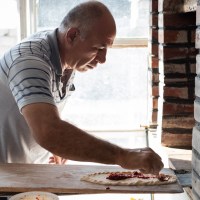They say “if you can’t stand the heat, get out of the kitchen.”
We propose an alternate version: if you can’t stand the heat, invite your friends into the kitchen to help.
For fourteen years Azad’s cousin Azer practiced his craft as a baker in Syria. And now he’s teaching Azer. He knows the process of making bread as well as he knows how to breathe, and has perfected techniques for controlling the rise of dough in a hot climate. They start with ice water, adding large chunks of ice chipped from a block, to cool the bowl of the mixer as they start the process. After adding the flour and mixing to a shaggy, rough dough, they let the mixture rest, so the flour can become fully hydrated before moving on to the next steps.
Every stage in the process needs to be this deliberate, when the temperature of the kitchen is 100℉ before the oven gets turned on.
But making the dough is the easiest part of the process.
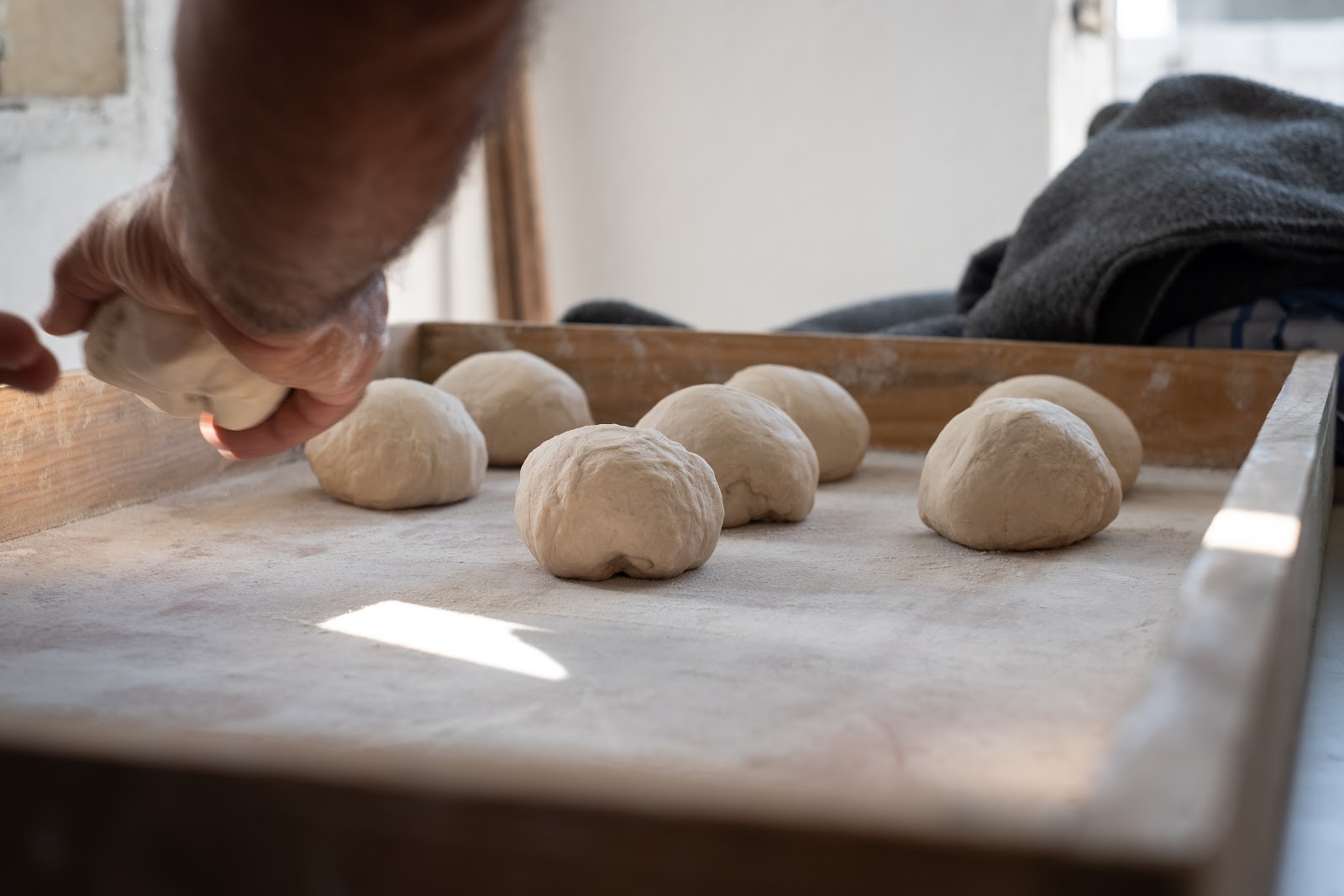
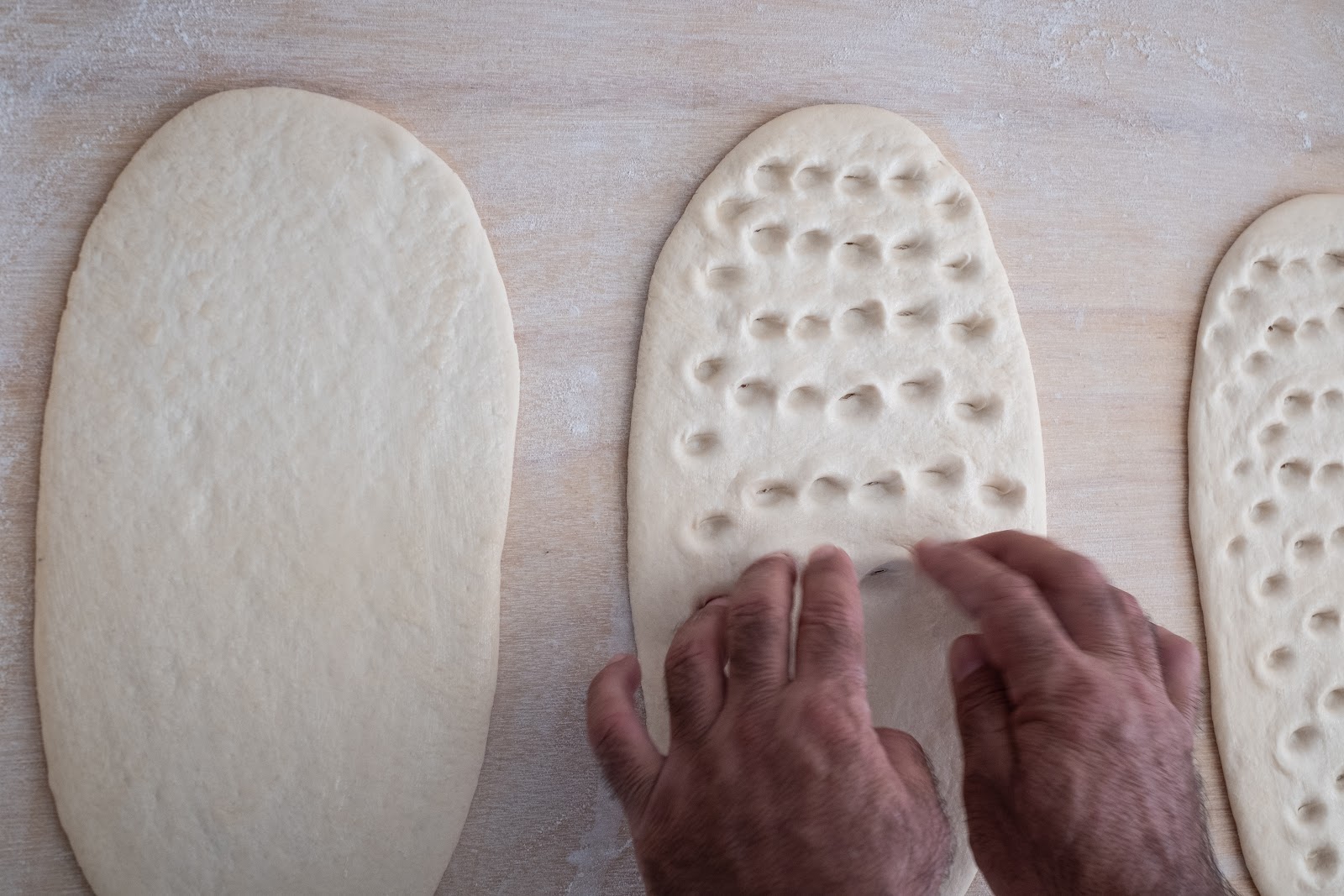
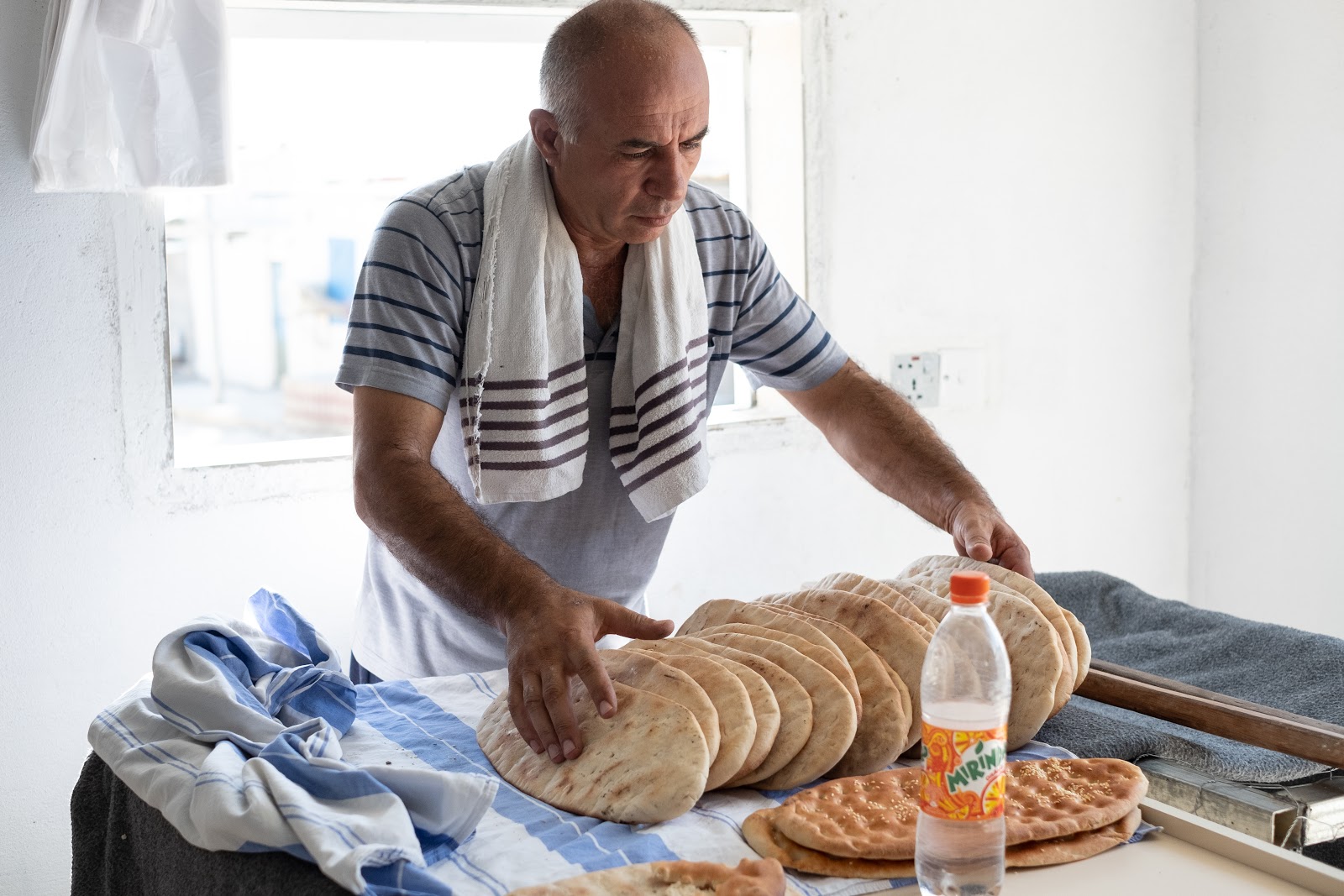
Helping Azad and his partner Azer open the bakery was a team effort!
The need for a bakery in their section of the refugee camp was clear—there were several hundred families who eat bread every morning for breakfast, and not a single bakery in their neighborhood. Residents of “Block H” had to walk a long distance into other parts of the camp in order to buy their morning bread. But it’s a complicated matter to get permission to build a bread oven in a camp setting.
Naturally, camp officials weigh the safety of the neighborhood above any single business. Azad and Azer needed support to help push them through the process of opening a “higher risk” business, and to demonstrate they were taking care of every detail properly. Our team walked alongside these two men, to jump every hoop and slay every bit of red tape.
Then there was the matter of the oven. Most businesses are simple to prepare for opening. Shepherds need to fence off an area of pasture and put up a basic pen. Shopkeepers need to buy a fridge and shelving. But a bread baker needs to build his oven—a sturdy, yet precise tool for controlling and conserving heat through flame and mass. The men built the exact oven they needed with their own hands.

By the time opening day came around, the neighbors were anxious to taste their wares! They had watched the long process of permissions and construction from the front stoops of their refugee camp homes, and longed for a taste of Syria.
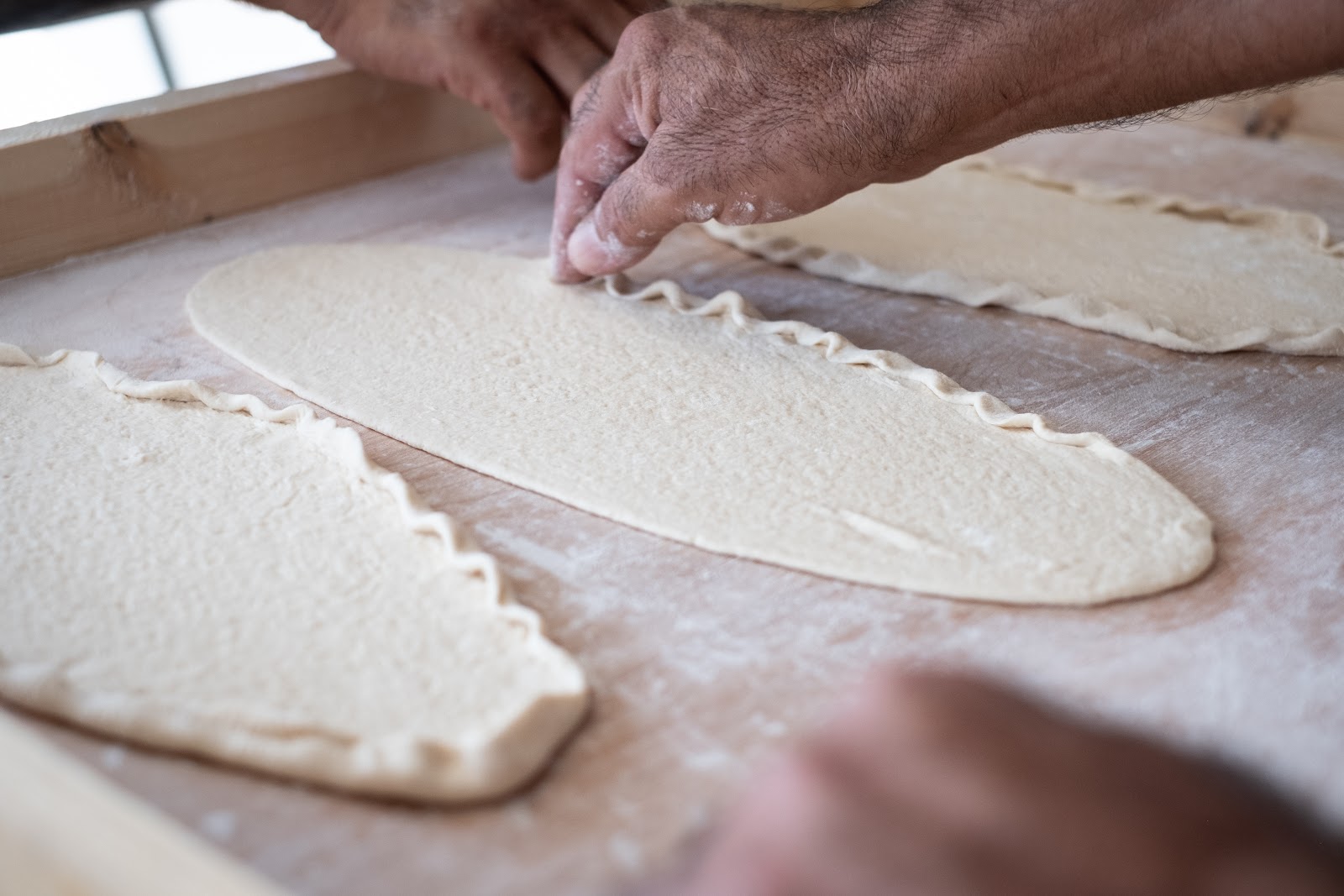

One of the delicious dishes that has returned to the daily lives of the neighborhood is manakish—flatbread, with edges crimped like pie dough, topped with cheese, red pepper paste, or za’atar—a tangy spice blend rich with sumac.
If you want to start a business in a refugee camp in a post-war economy, you need more than start-up capital to succeed. You need more than skill in your trade (and delicious manakish!). A business here is like the yeast bread that Azad and Azer make daily—it needs patience, encouragement, and a little time to rise.
And your investment in small business grants makes that possible.

